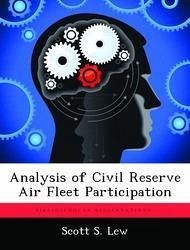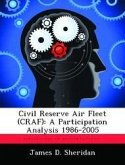Organizational slack is the cushion of actual or potential resources that allows an organization to adapt to internal or external pressures. Slack resources can come in many forms, such as excess capacity and unused capital. Commercial airlines possess slack in the form of excess capacity, also known as load factor. Due to the increasing pressures to reduce costs and eliminate excess capacity, the commercial carriers constant try to increase their load factors to a breakeven point. One method air carriers use to reach this breakeven point is by participating in the Civil Reserve Air Fleet (CRAF) program. By participating, commercial carriers are eligible for a portion of the $2 billion dollars in annual Department of Defense business and have access to a revenue stream to augment their commercial business and manage slack resources. The purpose of this study was to examine which factors have the greatest influence on CRAF participation. Due to the volatile nature of the airline industry, we examined the roles of organizational slack, financial health, and U.S. economic conditions in CRAF participation. After conducting linear regression of the data, at least two conclusions can be derived from these results: First, the economic conditions that the commercial carriers are experiencing have little bearing on the CRAF participation. Second, the results indicate that the large passenger and integrated cargo carriers are the least likely carriers to want to participate in CRAF. The empirical evidence shows that CRAF participation is driven more by the carrier size, financial health of the carrier, and the carrier type. These results have significant implications for policy changes in the CRAF program. Maintaining a viable incentive program is vital to the long term success of the CRAF program.
Hinweis: Dieser Artikel kann nur an eine deutsche Lieferadresse ausgeliefert werden.
Hinweis: Dieser Artikel kann nur an eine deutsche Lieferadresse ausgeliefert werden.








